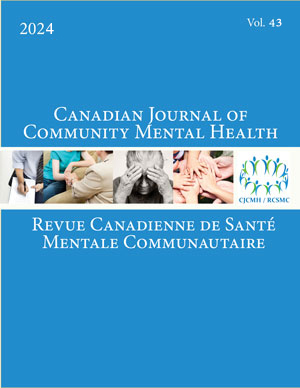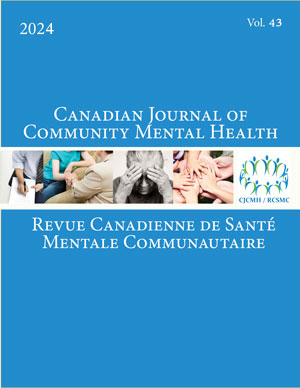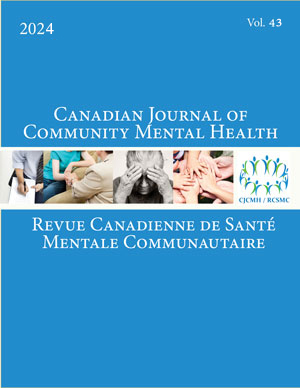Volume 24 • Number 2 • September 2005
OPEN ACCESS
Multiple sclerosis (MS) is a chronic neurological disease with numerous symptoms and consequences that does not typically reduce life expectancy. Mental health issues are common in this population, yet few investigations have targeted people aging with this disease (i.e., people aged 45+). This study examined factors contributing to mental health challenges among 1282 people with MS aged 45 to 90 and the extent of mental health service use among those who reported problems. Findings showed that functional abilities, age, years since diagnosis, presence of a helper, and self-rated health are related to mental health challenges. Less than 16% of people with mental health challenges were receiving services.
OPEN ACCESS
Later-life immigration and a lack of dominant language competency present many challenges to mental health for older adults. English as a Second Language (ESL) classes for seniors, often regarded as the sole domain of ESL teachers, offer mental health professionals opportunities for mental health promotion and education. This paper examines some of the mental health issues that emerged from stories written by older adults in an ESL for Seniors program. The program is presented as an example of best practices in an ESL for Seniors program because of its specific development to meet the needs of ESL older persons.
OPEN ACCESS
The Seniors Mental Health Policy Lens (SMHPL) is an analytical tool developed to identify unintended negative effects of current and planned policies, programs, and practices on seniors' mental health. It is designed (a) to promote social environments, including health services, supportive of older adults' mental health, and (b) to help ensure that the way mental health services are defined, delivered, and funded will result in increased emphasis on mental health promotion and on the prevention of mental health problems. The SMHPL incorporates Canadian seniors' perspectives on the factors influencing their mental health, and reflects the values of older adults.
OPEN ACCESS
Reposant sur des données qualitatives et des mesures quantitatives de la détresse psychologique, cette étude examine les attitudes de 14 bénéficiaires de maintien à domicile et de leurs aidantes relativement à l'utilisation de psychotropes, et les met en relation avec le style de soutien familial ainsi que le niveau de détresse psychologique des femmes âgées (autorapportée ou attribuée par les aidantes). Quatre types—« c'est une habitude », « c'est utile et sous contrôle », « c'est pour qu'elle se maîtrise » et « quel psychotrope?! »—décrivent les attitudes adoptées par les aidantes relativement à l'utilisation de psychotrope par les personnes âgées en perte d'autonomie. Ces types sont associés à la convergence et la divergence entre le niveau de détresse psychologique autorapporté par la personne âgée et celui estimé par son aidante. Bien qu'exploratoires, nos résultats indiquent qu'un écart élevé entre les scores de détresse psychologique autorapportés et estimés était associé à la détérioration des relations aidée/aidante, accompagnée d'une attitude de la part de l'aidante d'indifférence ou d'assujettissement envers l'utilisation du médicament. Ce dernier est ainsi perçu comme un outil incontournable non seulement par la consommatrice mais également par l'aidante débordée, dont la tâche se trouve ainsi allégée. Sur le plan clinique, nos conclusions signalent l'importance de la prise en compte de l'influence des aidantes proches lors de toute intervention visant la réduction, voire l'arrêt, de la consommation chronique de psychotropes par une personne âgée en perte d'autonomie.
OPEN ACCESS
This paper reviews the major studies of mandatory outpatient treatment (MOT) and examines why there has been inconsistency in some of the findings. Attempts to answer the question “is mandatory treatment effective?” must first clarify the type of mandatory treatment being examined, the type of patient being treated, and the outcome by which effectiveness is measured. There is consistent evidence that various forms of MOT increase follow-up with psychiatric services and that court-ordered outpatient committal decreases victimization of patients in the community. It also appears likely that MOT reduces the use of hospitalization; but, due to methodological problems associated with the research, this conclusion remains controversial.
OPEN ACCESS
In Ontario, many people are calling for recovery to become the overarching philosophy and goal of the mental health system. Mental health service organizations are key to promoting recovery, but relatively little has been done to understand what recovery means at the organizational level. This paper describes the context, conduct, and findings of a participatory action research project designed to explore recovery in Alternatives, an organization in Toronto providing mental health services.
OPEN ACCESS
In Ontario, those dependent on substances are no longer eligible for welfare payments based on an addiction disability. While the impact of this program has not been assessed, evidence from a similar policy shift in the USA suggests deleterious effects on the health and social functioning of about half of those who lose this form of social support. A review of the research on the chronic-illness view of addiction, the fostering of stigma by exclusionary social policies, and the negative effects on mental health and homeless status associated with the loss of welfare benefits leads to the conclusion that this is an ill-advised policy for Ontario. Its continuation there, and its extension to other provinces, is not recommended.
OPEN ACCESS
Current understanding of youth aged 15-24 experiencing mental health problems is limited. Through a qualitative analysis of the subjective experiences of 7 male and 6 female youths, 4 core categories emerged as stages that described the participants' process of mental illness: emergence, loss, adaptation, and recovery. Results showed that youth experiencing mental health problems felt stigmatized and labelled, and experienced multiple losses of identity, family, career choices, and educational and social standing. Participants reported that having mental health problems disrupted their transition from adolescence to young adulthood; however, these data reveal how youth adapt and recover. Implications of the findings in this study will be useful in identifying youth-focused interventions that may help professionals assist youth more effectively in their recovery process.
OPEN ACCESS
Providing care to a friend or relative suffering from a mental health problem can affect the physical and mental health of the caregiver. In the Montreal Mental Health Survey, 405 caregivers of people suffering from such problems took part in a mail survey about their experiences. The goal of this article is to describe these caregiving experiences and to identify their predictors. Results show that seriousness of the care recipient's problem is a predictor of a negative caregiving appraisal, but much less so of a positive one. The caregiving context is decisive in relation to both the positive and negative aspects of the experience. A strong correlation is observed between the positive and negative aspects of the scale, indicating that the caregiving experience is not one-dimensional. On the contrary, it can be simultaneously burdensome and satisfying.










